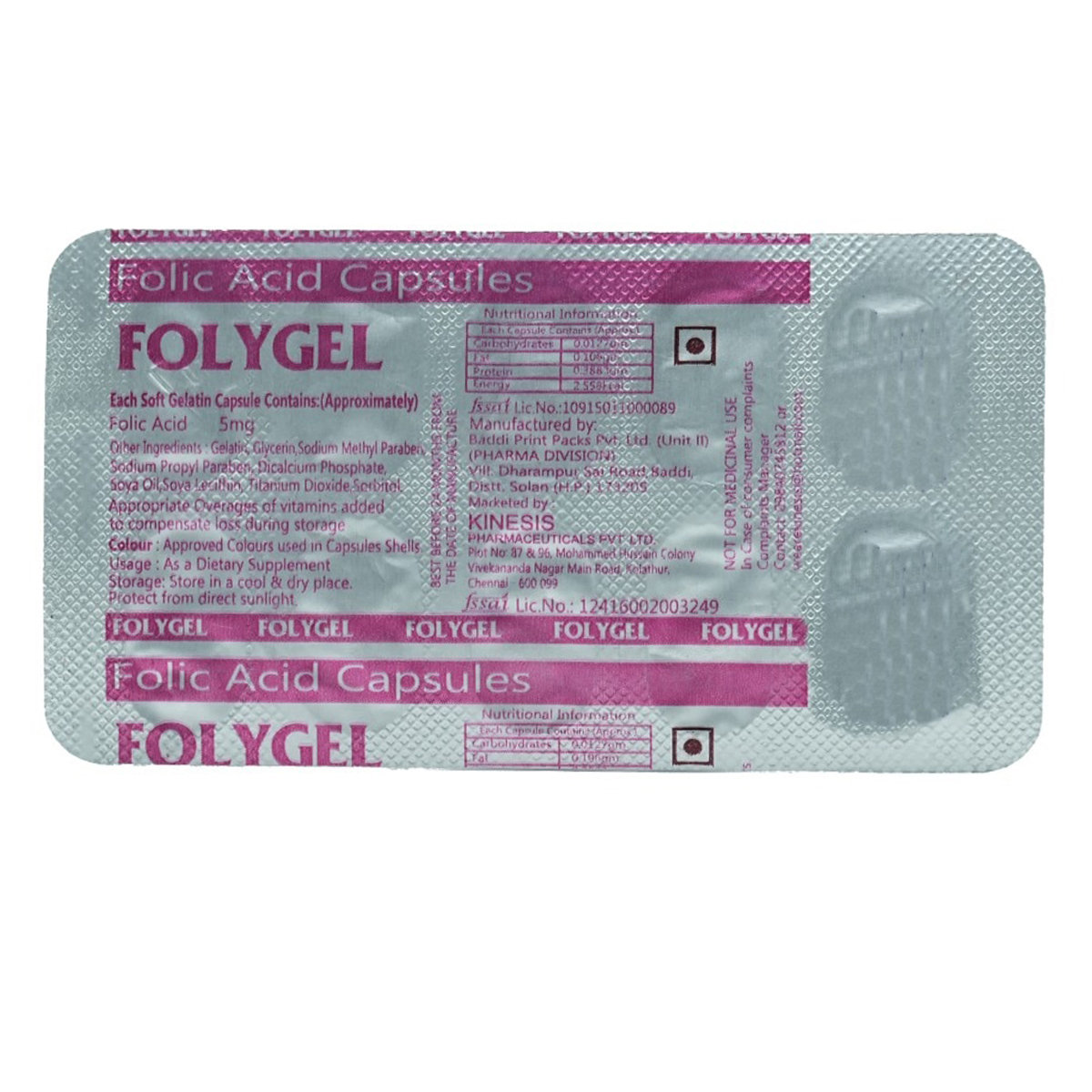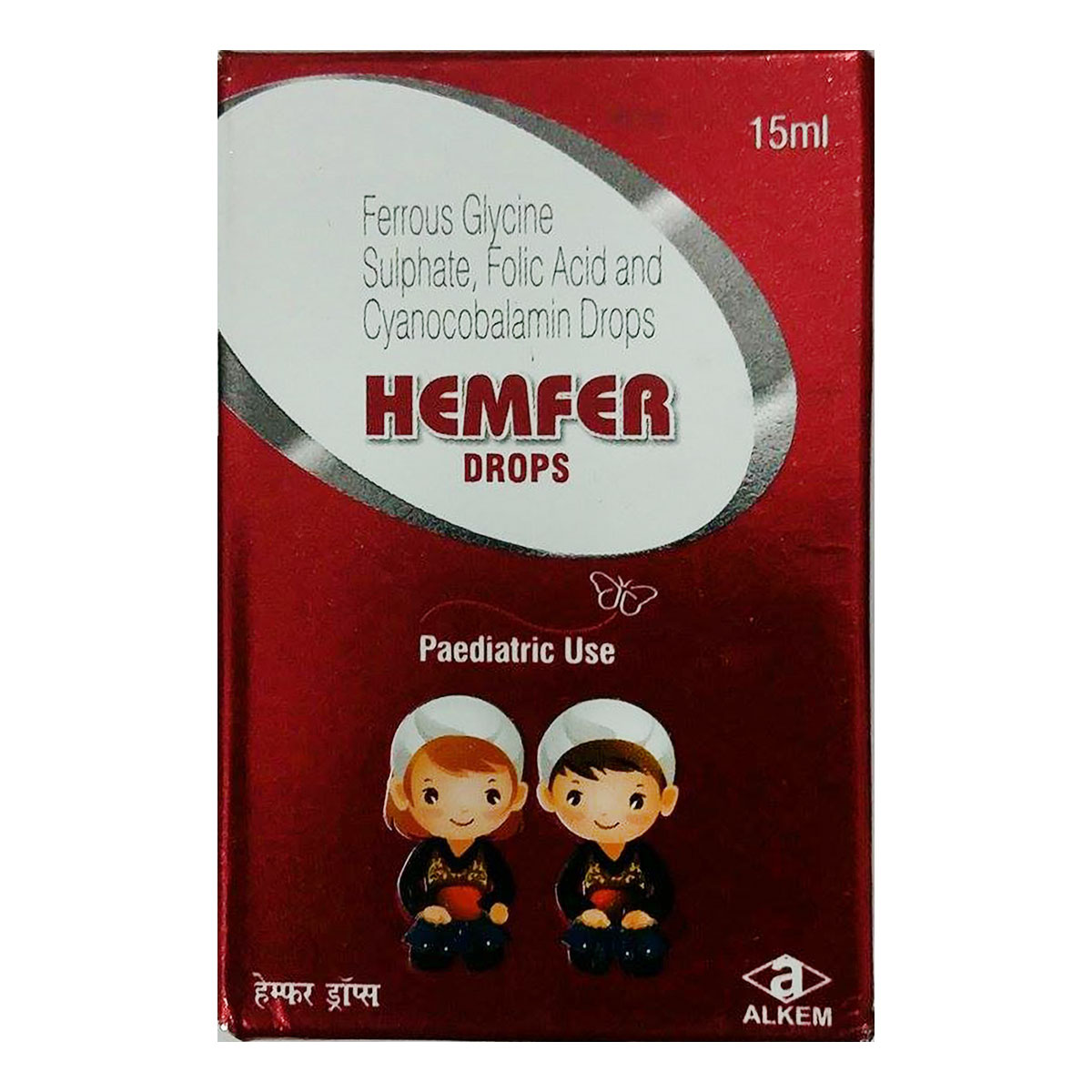Folic Acid+docosahexaenoic Acid+cyanocobalamin
About Folic Acid+docosahexaenoic Acid+cyanocobalamin
Cyanocobalamin+docosahexaenoic Acid+folic Acid belongs to the class of 'Vitamins,' primarily used to treat nutritional deficiencies. It is used to treat and prevent vitamin B6 deficiency, folate deficiency and vitamin B12 deficiency. Cyanocobalamin+docosahexaenoic Acid+folic Acid effectively treats various conditions caused due to lack of vitamins, such as anaemia (lack of red blood cells), peripheral neuropathy (nerve disorder), seizures (fits), hyperoxaluria (excess oxalate levels in urine), homocystinuria (accumulation of an amino acid called homocysteine in urine and blood), cyanide poisoning and hyperhomocysteinemia (high levels of homocysteine in the blood).
Cyanocobalamin+docosahexaenoic Acid+folic Acid contains Folic Acid, Cyanocobalamin, and Docosahexaenoic Acid (DHA). Folic acid is a type of vitamin B. It is necessary to form red blood cells, which transport oxygen throughout the body. It is also essential during pregnancy because it develops the unborn baby's brain and spinal cord. Cyanocobalamin is a type of vitamin B12 that provides vital nutrients. DHA is a nutritional supplement. DHA is important for brain development. DHA lowers cholesterol and triglyceride levels, inhibits platelet aggregation and LDL oxidation, and inhibits the synthesis of inflammatory markers like prostaglandins. Overall, DHA is important in reducing the risk of heart and circulatory disease.
Take Cyanocobalamin+docosahexaenoic Acid+folic Acid as prescribed by your doctor. You should take Cyanocobalamin+docosahexaenoic Acid+folic Acid as long as your doctor has prescribed it after checking your medical condition. Cyanocobalamin+docosahexaenoic Acid+folic Acid may cause side effects such as nausea (feeling sick), vomiting (being sick), diarrhoea, anorexia (loss of appetite), headache, weight loss, fatigue, bloating and flatulence. These side effects are usually mild and do not require any medical attention. However, if any of these side effects persist or worsen, consult a doctor immediately.
Do not take Cyanocobalamin+docosahexaenoic Acid+folic Acid if you are allergic to any of its contents. Do not take Cyanocobalamin+docosahexaenoic Acid+folic Acid, if you have hypercalcemia (high levels of calcium in the blood), osteoporosis (thin and brittle bones), metastatic calcification (extra deposits of calcium in the body), kidney problems, cancer, undergone surgery, optic nerve damage. You are not well due to high levels of vitamin D. Also, inform your doctor if you are pregnant or breastfeeding.
Uses of Folic Acid+docosahexaenoic Acid+cyanocobalamin
Medicinal Benefits
Cyanocobalamin+docosahexaenoic Acid+folic Acid contains Folic Acid, Cyanocobalamin, and Docosahexaenoic Acid (DHA). Folic acid is a type of vitamin B. It is necessary to form red blood cells, which transport oxygen throughout the body. It is also essential during pregnancy because it develops the unborn baby's brain and spinal cord. Cyanocobalamin is a type of vitamin B12 that provides vital nutrients. DHA is a nutritional supplement. DHA is important for brain development. DHA lowers cholesterol and triglyceride levels, inhibits platelet aggregation and LDL oxidation, and inhibits the synthesis of inflammatory markers like prostaglandins. Overall, DHA is important in reducing the risk of heart and circulatory disease.
Directions for Use
Storage
Side Effects of Folic Acid+docosahexaenoic Acid+cyanocobalamin
- Nausea (feeling sick)
- Vomiting (being sick)
- Diarrhoea
- Anorexia (loss of appetite)
- Headache
- Weight loss
- Fatigue
- Bloating
- Flatulence
Drug Warnings
Before taking Cyanocobalamin+docosahexaenoic Acid+folic Acid, inform your doctor if you are undergoing hemodialysis due to kidney problems and have a stent in the heart. Tell your doctor if you are taking a blood thinner or have bleeding problems. This medicine may affect certain lab test results, so tell your lab worker or healthcare provider that you are taking Cyanocobalamin+docosahexaenoic Acid+folic Acid. It is advised to avoid any dairy product after taking this medicine as it may make the medicine not work well. Excessive alcohol consumption reduces absorption and increases the elimination of folic acid. Alcohol can also worsen the side effects like drowsiness and stomach upset. Hence, please avoid alcohol while using the Cyanocobalamin+docosahexaenoic Acid+folic Acid.
Drug Interactions
Drug-Drug Interactions: Cyanocobalamin+docosahexaenoic Acid+folic Acid is known to interact with medicines used to treat rheumatoid arthritis (penicillamine, sulfasalazine), blood cholesterol (cholestyramine), antacids (sodium bicarbonate, magnesium hydroxide), Parkinson's disease (levodopa, carbidopa), thyroid disease (thyroxine), bone disease (bisphosphonates), certain cancers (aminopterin, methotrexate), malaria (pyrimethamine), Wilson's disease (trientine), thyroid medications (levothyroxine), antibiotics (cotrimoxazole, chloramphenicol, tetracyclines).
Drug-Food Interactions: Cyanocobalamin+docosahexaenoic Acid+folic Acid should not be taken along with alcohol, dairy products, and eggs as it might affect Cyanocobalamin+docosahexaenoic Acid+folic Acid absorption in the body.
Drug-Disease Interactions: Cyanocobalamin+docosahexaenoic Acid+folic Acid is known to interact with certain medical conditions like stomach ulcer, a blood disorder, repeated blood transfusions, ulcerative colitis (inflammation of the colon), anaemia, and folate tumour.
Drug-Drug Interactions Checker List:
Safety Advice

Alcohol
cautionAlcohol may increase the risk of side-effects, so do not consume alcohol.

Pregnancy
cautionThere are no sufficient data available to establish the safe use of Cyanocobalamin+docosahexaenoic Acid+folic Acid during pregnancy, so consult a doctor before using Cyanocobalamin+docosahexaenoic Acid+folic Acid.

Breast Feeding
cautionThere are no sufficient data available to establish the safe use of Cyanocobalamin+docosahexaenoic Acid+folic Acid in breastfeeding mothers, so consult a doctor before using Cyanocobalamin+docosahexaenoic Acid+folic Acid.

Driving
safe if prescribedCyanocobalamin+docosahexaenoic Acid+folic Acid may not affect your ability to drive.

Liver
safe if prescribedCyanocobalamin+docosahexaenoic Acid+folic Acid may be possibly safe when prescribed in patients with liver diseases.

Kidney
cautionCyanocobalamin+docosahexaenoic Acid+folic Acid should be used with caution in patients with kidney diseases. The dose may have to be adjusted by your doctor.

Children
cautionThere are no sufficient data available to establish the safe use of Cyanocobalamin+docosahexaenoic Acid+folic Acid in children, so consult a doctor before using Cyanocobalamin+docosahexaenoic Acid+folic Acid.
Habit Forming
Diet & Lifestyle Advise
- Eat a well-balanced diet. Avoid greasy and processed foods. Avoid foods containing high sugars.
- Keep a check on your weight. Shed excess weight by exercising regularly.
- Do not take stress as it may affect your eating habits.
- Quit smoking and limit alcohol intake.
- Undergo health check-ups regularly as advised by your doctor.
Special Advise
- Clinical monitoring of folic acid, vitamins B12 and B6 levels through blood examinations is recommended.
- Let your doctor and the laboratory staff know if you are using Cyanocobalamin+docosahexaenoic Acid+folic Acid since Cyanocobalamin+docosahexaenoic Acid+folic Acid may interfere with laboratory tests like urine tests for urobilinogen.
Patients Concern
Disease/Condition Glossary
Nutritional deficiencies: A nutritional deficiency occurs when the body does not absorb or get enough food nutrients. Many nutrients are essential for a healthy life. Sometimes your body cannot absorb many nutrients even if you consume them. Nutrient deficiency can lead to many health problems like a weakened immune system, skin, heart, kidney, respiratory, or neurological diseases. During pregnancy, a woman's body requires more vitamins, folic acid and DHA for the baby's development, so taking nutrients helps develop the baby.
FAQs
Docosahexaenoic acid (DHA) is an omega-3 fatty acid. It is a natural part of cells and is an important component of the skin, eyes and brain. It plays an important role in developing the brain during pregnancy and infancy. It is also used in treating high cholesterol levels in the body. It does so by reducing the thickness of the blood and lowering the body's levels of triglycerides.
Usually, every person should take foods that boost the production of folate in their body or the person can take it directly in the form of supplements. However, women, who can become pregnant should focus more on their intake. If a woman who can be pregnant has enough folic acid in her body before her pregnancy then it can help to avoid the risk of major birth defects of her baby's brain and spine.
The best way to avoid the risk of folic acid deficiency during pregnancy is to start taking it at least three months before getting pregnant. It will reduce the risk of developing folate deficiency during pregnancy.
DHA is good for health and a person should consume it from either food and supplements or in both as the body cannot produce the required DHA (2 grams) by the body. It also helps to prevent or treat health diseases and high cholesterol levels in the body.
Consumption of DHA is important for the body as it requires about 2 grams per day; however, taking more than 3 grams per day may cause undesirable side effects in the body.
Cyanocobalamin+docosahexaenoic Acid+folic Acid can be safely used in patients with diabetes unless you have other problems such as kidney diseases or bone-related problems. So, it is recommended to inform your doctor before taking Cyanocobalamin+docosahexaenoic Acid+folic Acid to avoid any risks.
Cyanocobalamin+docosahexaenoic Acid+folic Acid is possibly safe when used in patients with thyroid problems. However, make sure to inform your doctor before taking this medicine as Cyanocobalamin+docosahexaenoic Acid+folic Acid may interact with levothyroxine used to treat hypothyroidism (underactive thyroid).









